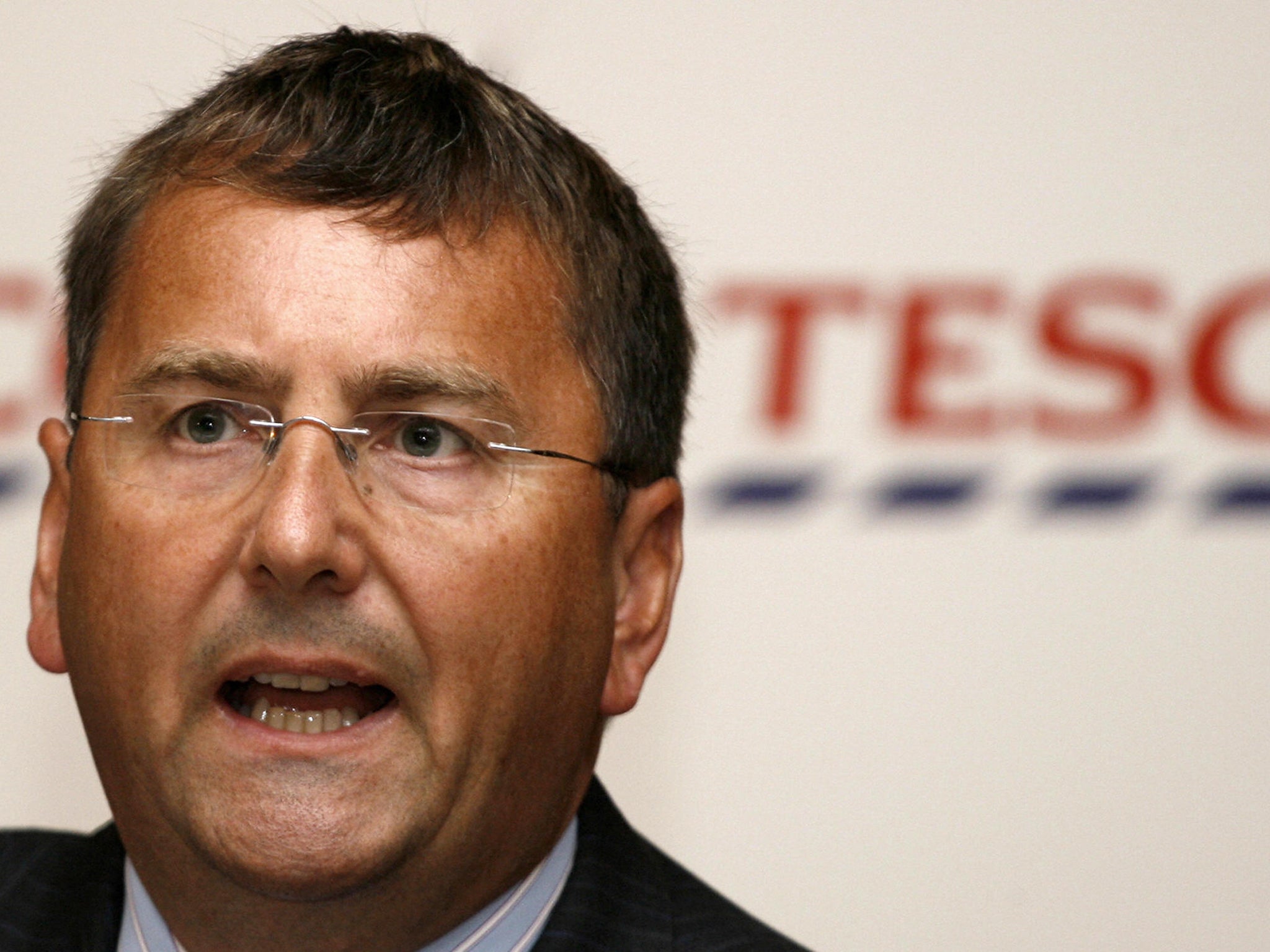Tesco promises to bring meat closer to home in wake of horsemeat scandal
Chief executive Philip Clarke says he will ensure that 'if it is not on the label it is not in the packet'

Your support helps us to tell the story
From reproductive rights to climate change to Big Tech, The Independent is on the ground when the story is developing. Whether it's investigating the financials of Elon Musk's pro-Trump PAC or producing our latest documentary, 'The A Word', which shines a light on the American women fighting for reproductive rights, we know how important it is to parse out the facts from the messaging.
At such a critical moment in US history, we need reporters on the ground. Your donation allows us to keep sending journalists to speak to both sides of the story.
The Independent is trusted by Americans across the entire political spectrum. And unlike many other quality news outlets, we choose not to lock Americans out of our reporting and analysis with paywalls. We believe quality journalism should be available to everyone, paid for by those who can afford it.
Your support makes all the difference.The boss of Tesco has vowed to bring meat production 'closer to home' and work much more closely with British farmers as part of a raft of changes in response to the horse meat scandal.
Chief executive Philip Clarke has introduced a new testing process so that customers can be sure that what is on the label is in the packet.
He also said that from July all chicken meats sold at Tesco's UK stores will come from British farms, the BBC said.
Mr Clarke told the BBC: "The testing regime is intended to ensure that if it is not on the label it is not in the packet, if it is beef, it is beef, and nothing else.
"And that is the most comprehensive testing regime I have ever seen, and it's happening right now.
"The second thing is we're going to bring meat production a bit closer to home. We do buy some, particularly for our frozen products, out of Europe, and as we can we'll bring it closer to home.
"And the third thing is we're going to have more partnerships, more collaboration with farmers."
But he would not promise that the changes would not cost customers more.
"I hope that it doesn't mean price increases, but I can't stand here today and tell you that it won't.
"I hope it doesn't, I'll work to make sure it doesn't."
Mr Clarke will address the National Farmers' Union conference in Birmingham today, and said he hoped the changes he indicated were "good signs" of why customers should trust Tesco.
Shoppers have said they want more food from British farms on supermarket shelves in the wake of the horse meat scandal, a poll suggested today.
Farmers called for more transparency and an end to "short-termism" in some sectors of the food supply chain and for better labelling so people could choose to buy British.
More than three-quarters (78 per cent) of 1,000 people polled for the National Farmers' Union said supermarkets should sell more food from British farms and 43 per cent said they were more likely to buy traceable food from farms in Britain following the revelations over horse meat in processed foods.
Ahead of the NFU's annual conference in Birmingham this week, president Peter Kendall said shorter and more traceable supply chains would alleviate the crisis of recent weeks.
He also called for clearer country of origin labelling so consumers could buy British more easily.
Mr Kendall said: "Farmers have been furious about what has happened.
"They have spent many years working to ensure the British supply chain is fully traceable from farm to pack, and have upheld strong principles which are embodied in assurance schemes like Red Tractor.
"For me this is fundamental for consumer confidence.
"But more than that, I want to see retailers working on rebuilding consumer trust - improving transparency and partnership with farmers and the rest of the supply chain is critical.
"However, what we see currently in some sectors is real short-termism. The margin distribution in the supply chain needs more transparency and joined-up thinking if we are to tackle the dual challenges of volatility and environmental pressures."
He added: "Our research also demonstrates the strong demand for British-farmed products, and so retailers, processors and food service companies have a responsibility to ensure there is clear country of origin labelling on the products that consumers purchase."
He said more than half of those questioned (51 per cent) found information on food origin either confusing or very confusing - something which had to change.
"More needs to be done to make labelling clearer and the NFU lobbies hard on this issue.
"For consumers, I say be more demanding. Ask your retailers where the food they are selling comes from and look out for the Red Tractor logo carrying the Union flag to know the food you are buying is produced to good standards and traceable from farm to pack," he urged.
Speakers at the NFU's annual conference include Mr Clarke and Environment Secretary Owen Paterson.
PA
Join our commenting forum
Join thought-provoking conversations, follow other Independent readers and see their replies
Comments